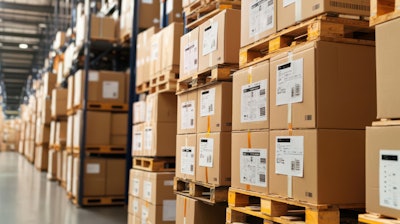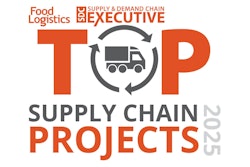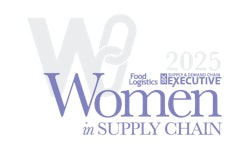
Total Cost of Ownership (TCO) is a concept for making business purchase decisions. It includes the upfront cost, related costs, and estimated ongoing expenses throughout the product’s lifecycle.
TCO is often compared to an iceberg—obvious costs are just the tip, while hidden costs lie beneath. Many businesses overlook hidden costs such as training, downtime, and integration efforts, which can significantly impact long-term financial planning. Comparing TCO across vendors provides an objective basis for decision-making and prevents unexpected budget overruns.
What is TCO?
TCO is the total cost of a solution over its lifespan. For label management solutions, this includes the software purchase, implementation costs, ongoing support costs, and ongoing maintenance costs. Much of the TCO is set by the software vendor, such as the software price and hourly rate for related services. Some of the TCO can be influenced by the buyer, including labor costs, infrastructure costs, and training costs.
Why estimate TCO?
When comparing two or more label management vendors, TCO is a great tool to make an objective comparison. Often, different vendors offer different licensing options, support contracts, and policies. Vendor A may offer a lower cost for ongoing support but subject its customers to price increases. Vendor B may offer a higher cost for ongoing support but allow customers to lock in their price. The better option depends on how long you plan to use the software, the average price increase of Vendor A, and the quality of support offered by both vendors.
Keep in mind that TCO is an estimate based on the information you have now. You can’t predict the future, but you can make a good guess. Don’t get lost in the tiny details but aim for a realistic general estimate.
Software license costs
To use any label management software, you have to license it from the developer. Most software companies prioritize subscription licensing, but some still offer perpetual licensing.
Subscription licensing
A subscription license requires a recurring payment to maintain access to the software license. It can be thought of as “renting” the license. When you stop paying, you lose access to the license.
Subscription licenses often include valuable benefits: technical support, free version upgrades, and training, for example. The ongoing cost supports the ability of the developer to offer technical support, provide bug fixes, and improve the software over time.
Since subscription licenses are an ongoing cost, they are considered an operational expense (OpEx) for accounting.
Perpetual licensing
A perpetual license is bought with a one-time payment. The license that was purchased is yours to keep in perpetuity. To maintain a secure and modern technology environment, you will have to buy a new license on the latest version.
Software companies often offer Software Maintenance Agreements (SMAs) or support contracts alongside a perpetual license purchase. This ongoing cost includes access to technical support, version upgrades, and training.
Since perpetual licenses are a one-time investment, they are considered a capital expenditure (CapEx) for accounting.
Apart from the licensing model, it’s critical to understand what the license price is based on. Label management software is often priced based on a combination of users, devices, and usage.
As you calculate the TCO of a potential label management solution, make sure to incorporate your company’s growth goals. How much will the license cost grow as you add users and devices and increase usage?
Questions to ask a potential vendor:
· What is the label management software license price based on?
· Do you offer a subscription licensing model? If so, what is included?
· What happens when I need to add users or devices?
Support costs
Support will likely be the second largest investment when purchasing a label management solution. Every software solution needs support. Support typically includes help using the software, troubleshooting, answering questions about how it works, and providing solutions to issues that may arise.
First-party or third-party support?
The best company to support your label management software is the one that makes it. Getting first-party support from the software developer means they are deeply familiar with the software. Your issues will be solved quickly, and your support representative may recommend a better way to use the software that prevents recurring issues. The software developer maintains a log of known issues and enhancement requests, meaning your discussion with first-party support can directly result in a software enhancement.
It may be possible to purchase a support contract from a third party. A third party may have some level of expertise with the software, but they likely work with many software packages and have a shallower understanding of all of them. Finally, a third-party support representative won’t have a direct influence on the future development of the software. Be wary of selecting third-party support for a business-critical solution like label management.
Questions to ask a potential vendor:
· What are your support policies?
· When is support available? Does availability differ by phone and email?
· How long will you continue to support old versions?
· For third-party support: How is your staff trained on the software?
· For third-party support: What happens if you can’t resolve an issue?
Software upgrade costs
Upgrades maintain security, usability, and compatibility with modern technology. The upgrade process depends on software hosting:
· On-Premises/Private Cloud: You control upgrade timing, with predictable downtimes. However, you may need IT resources to manage the process, adding to the TCO.
· SaaS (Cloud-Based): Vendor-controlled upgrades happen continuously, sometimes without rollback options, posing a risk of unplanned downtime. While this eliminates IT management overhead, it requires trust in the vendor’s release process.
Hidden upgrade costs include compatibility testing, retraining employees on new features, and potential disruptions in workflow. Understanding how upgrades impact operations can prevent unexpected costs.
Questions to ask your vendor:
· Are software upgrades included in my software license or support contract?
· If the software is installed on premises: How often are upgrades available?
· If the software is SaaS: How often are upgrades rolled out?
· If the software is SaaS: Can I preview upgrades before they apply to my system?
TCO helps ensure a smart, cost-effective investment in labeling software. By choosing the right labeling provider and asking the right questions you can set your company up for long-term success. Planning for TCO now helps create a scalable labeling environment for the future.













